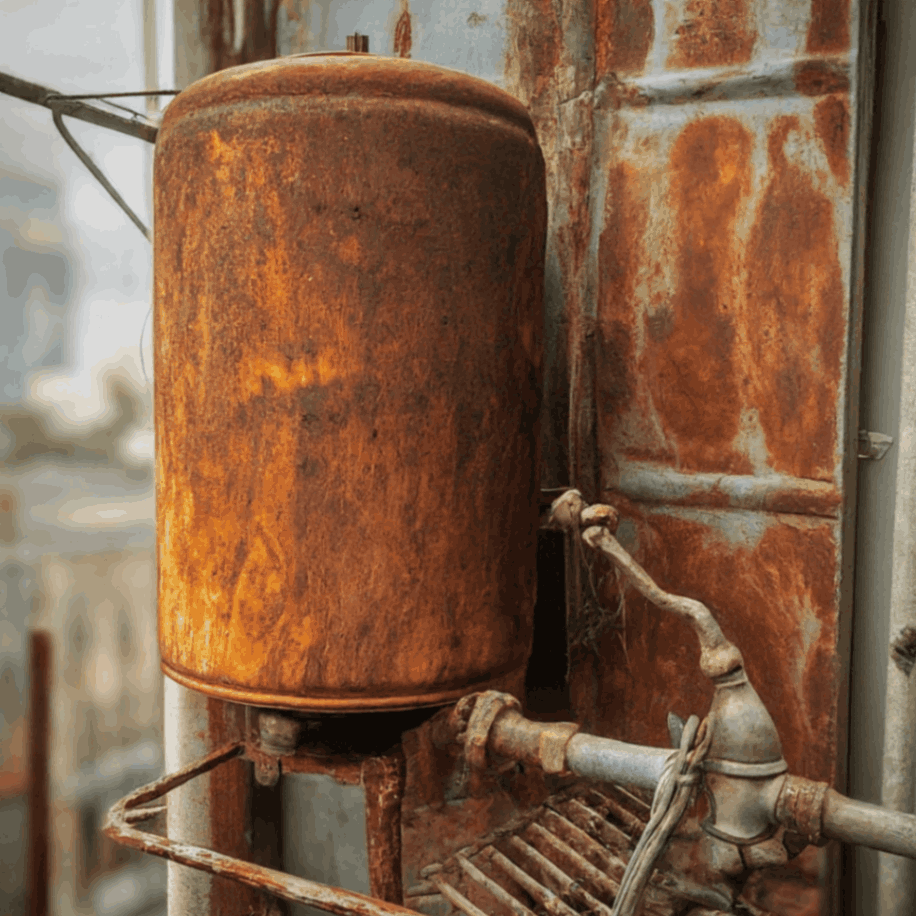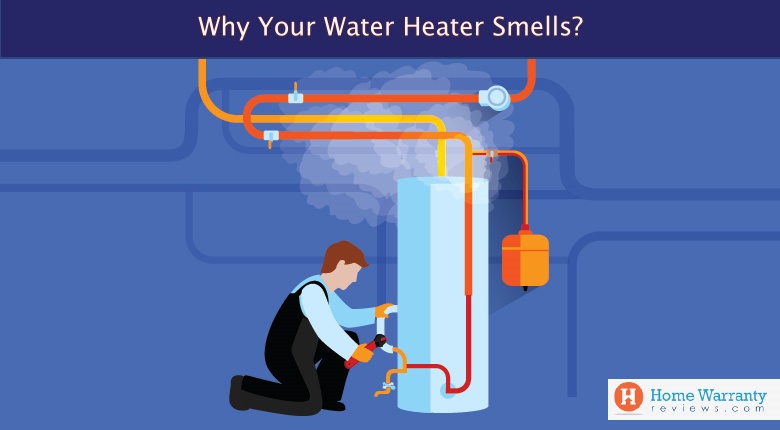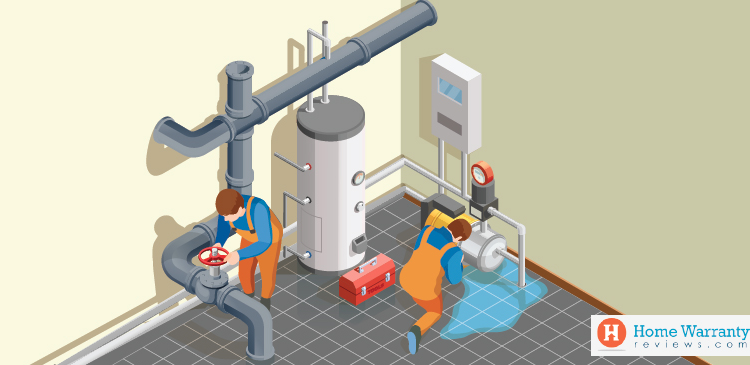 Last updated: December 21st, 2023
Last updated: December 21st, 2023
Decoding Water Heater Replacement Costs: A Comprehensive Guide
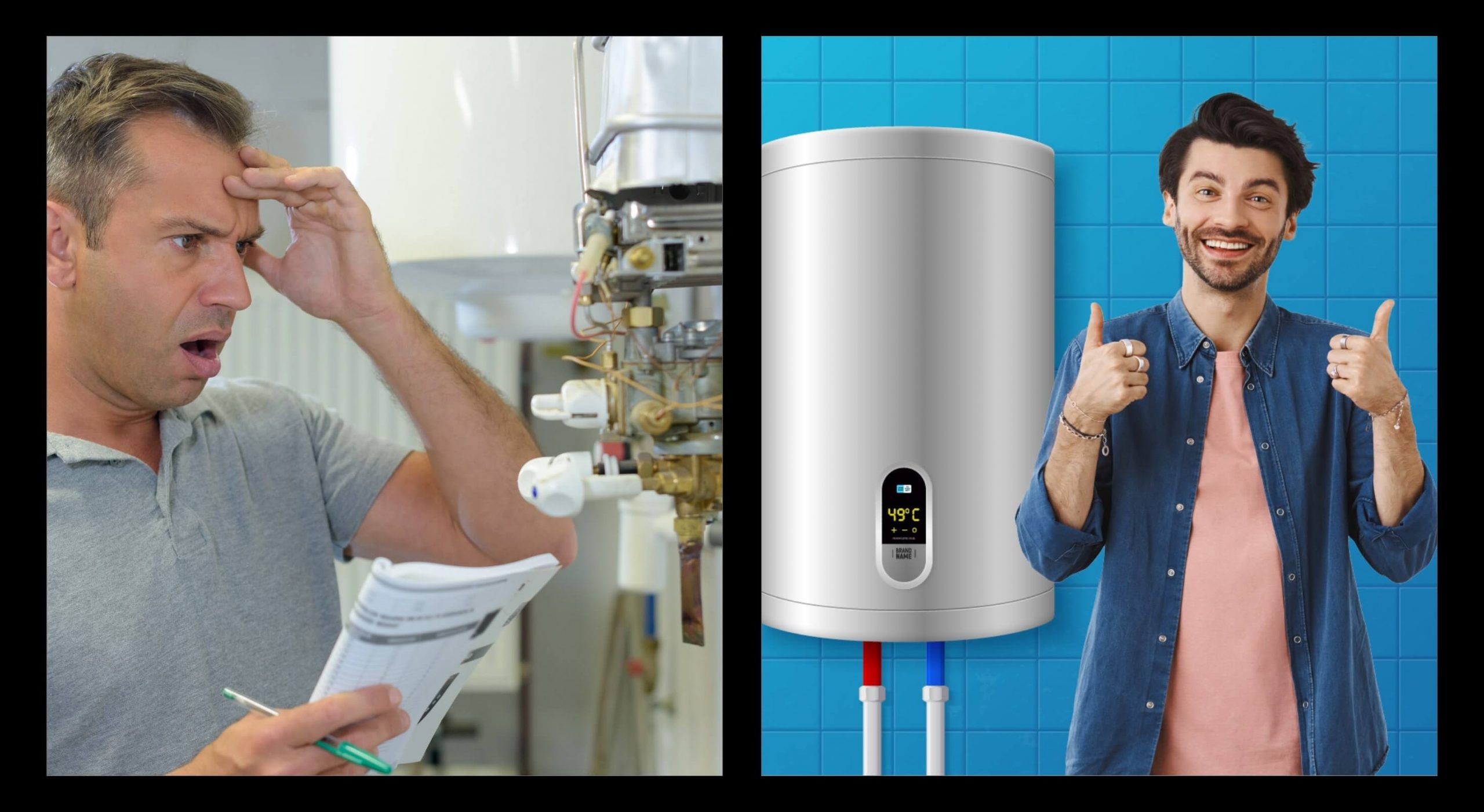
The instant availability of hot water is one of the pleasures of contemporary life. There’s nothing more satisfying than taking a hot shower to feel clean and rejuvenated after a hard workday. Hot water is a requirement in the house for everyday comfort and convenience.
However, a failure in heating water, loud sounds, water leakage, and rusty or hazy water are all symptoms that the unit is failing.
A Forbes survey indicates the average water heater installation cost is $1,400 (with a range of $900 to $3,000), influenced by hourly labor rates ranging from $50 to $200 for plumbers and $50 to $150 for electricians. Necessary supplies such as piping, fittings, valves, and connections contribute to expenses.
We’ve designed a guide to grasp the expenses of malfunctioning water heaters. This resource highlights warning signs of water heater issues and dives into various types, outlining their advantages, drawbacks, and associated costs.
Signs It Is Time For Water Heater Replacement
For most families, water heaters are a daily necessity. When they malfunction, it can seriously hinder day-to-day activities. As per Energy.gov, households spend $400 to $600 annually on water heating, the second highest utility expense, accounting for 14 to 18 percent of the total. Over 27 million US homes own water heaters that are over ten years old.
Upgrading due to new energy standards may save costs as older heaters are less efficient. Typically, water heaters last around 13 years; nearing this, they become less energy-efficient. Ten years ago, water heating accounted for 25% of home energy, now reduced to 18% with newer, efficient heaters.

Furthermore, here is a list of signs that if you are noticing in your water heater, then it is time to get it replaced with a new one:
- Water leaks
If you spot water pooling near your water heater base, it might signal a replacement requirement. The steel tank, surrounded by insulation, can deteriorate over time, causing leaks. However, not all puddles indicate tank erosion; condensation can cause temporary pooling. To ensure accuracy, consider having a technician inspect your appliance for peace of mind and ensure timely action to prevent potential water damage to your home. - Water Doesn’t Heat Up
The heating duration of a water heater can vary based on multiple factors. And if your water suddenly goes cold or tepid, it might signify a malfunctioning or dead water heater. This could also signal a burned-out heating element in the tank. - Metallic Smell and Taste in Water
When tap water emits a metallic odor or taste, it suggests corrosion in the metal water heater tank, which is common in older units. Yet, certain water chemicals or sediment might expedite the heater’s wear and tear. - Rusty Water in the Sink
In older homes, rust stains on bathroom sinks often result from rusty water heater tanks. Rust and corrosion usually accompany leaks. Replacing a rusty water heater is crucial to preserve water quality and prevent potential damaging leaks. - Frequent Repairs
An aging water heater requiring frequent fixes indicates it’s nearing the end of its life. Factors like heavy usage or insufficient maintenance can accelerate wear, making replacement more cost-effective than repeated repairs.By recognizing these telltale signs that indicate a water heater’s lifespan is nearing its end, homeowners can proactively address potential issues and avoid costly surprises. Staying vigilant for these signs ensures a continuous hot water supply and peace of mind.
Types Of Water Heaters, Pros & Cons & Their Costs
Navigating the world of water heaters when you decide to get a new one can be daunting, with various options available, each with its advantages and disadvantages. The table below delves into the different types of water heaters, exploring their pros, cons, and costs to help you make an informed decision for your home.
|
Type |
Pros |
Cons |
Cost |
|
|
|
|
|
|
|
|
|
|
The typical cost to replace a natural gas water heater ranges from $700 to $2,700. |
|
|
Propane |
|
|
The average cost to replace propane water heaters is around $700 to $2500. |
|
|
|
|
|
|
|
|
|
|
|
Factors Influencing The Water Heater Costs
The average cost of replacing a water heater is $1,296; the range is $880 to $1,768. Whether upgrading to a tankless system or completing a straightforward one-for-one exchange will determine how much it will cost. The water heater’s dimensions and personnel expenses are other cost factors.
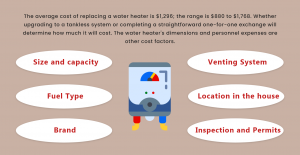
- Size and capacity
There are many sizes available for water heaters, expressed in gallons for tank-style systems (which usually range from 20 to 100 gallons) or gallons-per-minute for tankless systems. The price will increase with the size of the tank. - Fuel Type
The type of fuel a water heater uses determines how much it will cost to install. Water heaters running on natural gas, propane, or electricity all start at about $600, but the price increases. The priciest electric water heater is a high-end model, which can run up to $3,500 without installation or hookup. - Brand
Like many other home appliances, your total water heater cost may vary depending on your chosen brand. - Venting System
While gas or propane water heaters require venting, electric water heaters typically don’t. Direct venting and power venting are the two varieties. Direct-vent heaters use a chimney or exhaust pipe and are less expensive because they utilize a passive venting mechanism. Power-vent heaters are pricey and require power in addition to a fan or blower. Generally speaking, budget an extra $300 to $600 for a power-vent unit and an additional $300 to $500 for the wiring. - Location in the house
The intricacy and expense may rise if the water heater is installed in a difficult-to-reach location, such as a corner of the attic or the basement. To estimate any additional costs, consider the location’s accessibility and talk with the installation specialist about any potential obstacles. - Inspection and Permits
Projects involving installing or replacing water heaters must get permits and pass inspections. Local building laws may demand permits to ensure the installation complies with safety and environmental regulations. At the very least, you will require a permit to install a gas appliance or change the plumbing and electrical system. Permit cost ranges from $100 to $1,500.
Average Cost Breakdowns
If you install a water heater in a hard-to-reach place, the installation cost will increase. Additionally, moving your water heater is more expensive; the total cost might range from $150 to $3,400, based on how complicated the move is.
Also, the installation site may vary if you choose a tankless device. This can entail paying extra for new piping, venting, or other carpentry tasks to house the water heater properly.
Geographical factors will also come into play because labor expenses tend to rise in more expensive places to keep up with the rising cost of living. The average cost of replacing a water heater in several of the most prominent American cities is shown in the table below.
|
City |
Average Cost of Replacing a Water Heater |
|
New York, NY |
$1,500 – $2,500 |
|
Los Angeles, CA |
$1,300 – $2,300 |
|
Chicago, IL |
$1,200 – $2,200 |
|
Houston, TX |
$1,100 – $2,100 |
|
Philadelphia, PA |
$1,000 – $2,000 |
|
Phoenix, AZ |
$900 – $1,900 |
|
San Antonio, TX |
$800 – $1,800 |
|
San Diego, CA |
$700 – $1,700 |
|
Dallas, TX |
$600 – $1,600 |
|
San Jose, CA |
$500 – $1,500 |
|
Austin, TX |
$1,300 – $2,300 |
|
Jacksonville, FL |
$1,200 – $2,200 |
|
Columbus, OH |
$1,100 – $2,100 |
|
Indianapolis, IN |
$1,000 – $2,000 |
|
Fort Worth, TX |
$900 – $1,900 |
|
Charlotte, NC |
$800 – $1,800 |
|
San Francisco, CA |
$1,800 – $2,800 |
|
Denver, CO |
$1,600 – $2,600 |
|
Seattle, WA |
$1,500 – $2,500 |
|
Portland, OR |
$1,400 – $2,400 |
Citation: https://www.homeadvisor.com/cost/plumbing/install-a-water-heater/
Notes:
- The average costs listed in this table are for the replacement of a standard 50-gallon water heater. The cost of replacing a larger or smaller water heater may be higher or lower.
- The labor cost will vary depending on your home’s location and the installation’s complexity.
- The cost of permits may also be required, depending on your local jurisdiction.
How To Save Money On Water Heater Installation?
- Compare the prices of the various heater types. While some heaters may cost more to purchase and install, they may operate more efficiently over time, saving you money on energy bills.
- Electric water heaters are relatively less expensive than gas heaters. Although costly water heaters can always be purchased as gas or electric types, electric models are typically the more affordable.
- As per Energystar.gov, one should consider optimizing attic insulation before investing in a new air source heat pump for an old heating or cooling system. This approach ensures you’re not overpaying for heating or cooling. Pairing these upgrades in a year could yield tax credits of up to $1,200 for insulation and up to $2,000 for the heat pump. Also, combining a heat pump installation with window/door replacements may result in a $2,000 heat pump credit alongside window/skylight credits up to $600 and $500 for two or more doors. Subsequently, if you replace your water heater the following year, you could qualify for a 30% tax credit, up to $2,000, and an extra $600 for an electric panel upgrade if needed.
- Many home warranties cover expenses related to repairs and replacements for worn-out parts. Some warranties may cover home damages caused by issues like a leaking water heater. One should try to get quotes, as estimates may vary depending on the brand, dealer, plumber, and electrician.
DIY v/s Professional Installation
Trusting a professional for plumbing repairs and water heater installation is crucial for personal property. You need a licensed plumber with extensive experience to ensure quality work, and understand code requirements and safety additions.
Unlike DIY attempts, their expertise prevents potential hazards that might overlook crucial safety aspects. Although minor tasks like changing a toilet flapper might be exceptions, intricate jobs like soldering copper pipes or dealing with water heaters warrant a professional’s skill.
While it might cost more initially, opting for a licensed and insured plumber saves time, energy, and potential expenses, ensuring a job well done without unnecessary hassles or risks.
Conclusion
As you navigate the process of water heater replacement, remember that the investment you make today will significantly impact your home's comfort, efficiency, and overall value. By carefully considering your options and seeking professional assistance, you can make an informed decision that ensures a reliable and cost-effective hot water supply for years to come.
FAQs
Should I buy a tank-style or a tankless water heater?
A.
Choosing between a tank-style and tankless water heater depends on your home’s size, hot water needs, and space.
Tank-style ones keep water ready but eat up space, while tankless ones heat as needed, saving space but with limits on simultaneous use. So, understand your needs and make the move.
What size tank do I need?
A.
The size of your family or household plays a crucial role in picking the right water heater. For a typical home, water tanks range from 20 to 50 gallons. More people means more demand for hot water, so you’d need a larger tank to ensure enough for everyone.
Will the water heater be energy efficient?
A.
Most modern equipment is energy-efficient, but choosing a higher-end model with the newest technologies will most likely be much more so. Although these systems are typically expensive, your savings on utility costs will make them worthwhile in the long term.
How long will the installation take?
A.
A licensed plumber will likely replace your old heater in about three hours with a new one. This timeline assumes normal conditions and the absence of any unforeseen problems.
related articles
 Discover First American Home Warranty Locations and What You Need to Know About Their Cover.
Discover First American Home Warranty Locations and What You Need to Know About Their Cover.
 Reviews of Home Warranty Companies Show You How to Determine If Your Home Is Covered
Reviews of Home Warranty Companies Show You How to Determine If Your Home Is Covered










